Charting European business school graduates’ progress

Roula Khalaf, Editor of the FT, selects her favourite stories in this weekly newsletter.
The FT’s ranking team delved into the 2020 data on topics ranging from career progress, alumni seniority and sectors of employment to gender balance, value for money and graduates’ views on what business schools do well — and less well. We compare the figures for alumni from MBA, executive MBA (EMBA) and Masters in Management (MiM) programmes
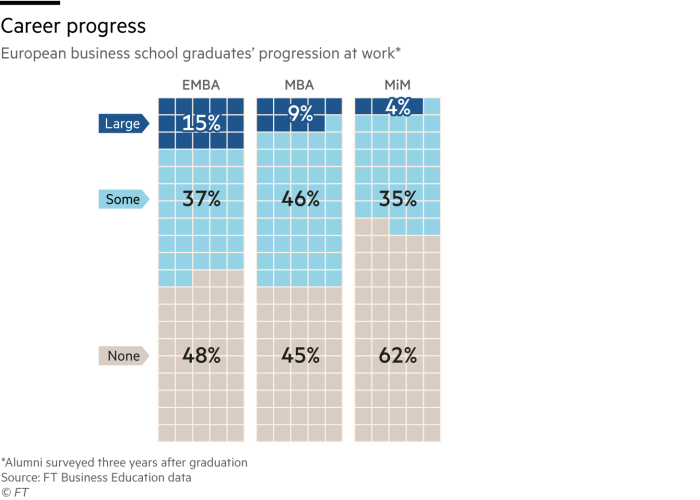
Progress between graduation and three years later. Most Masters in Management (MiM) students have not worked beforehand.
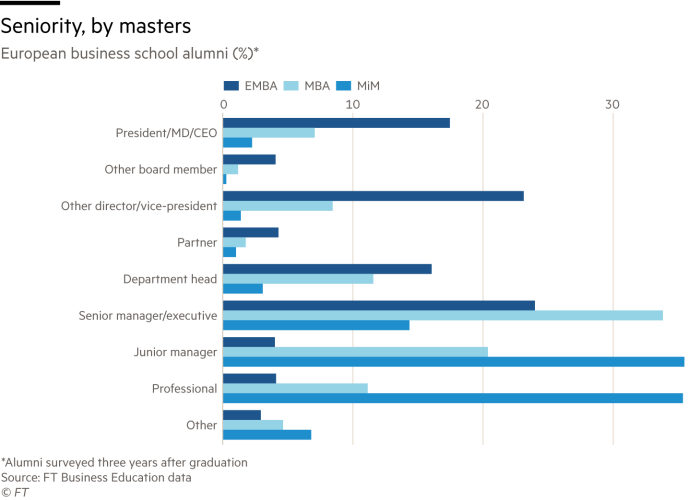
Executive MBA (EMBA) alumni tend to be more senior before their masters and are in more advanced positions three years after completing it.
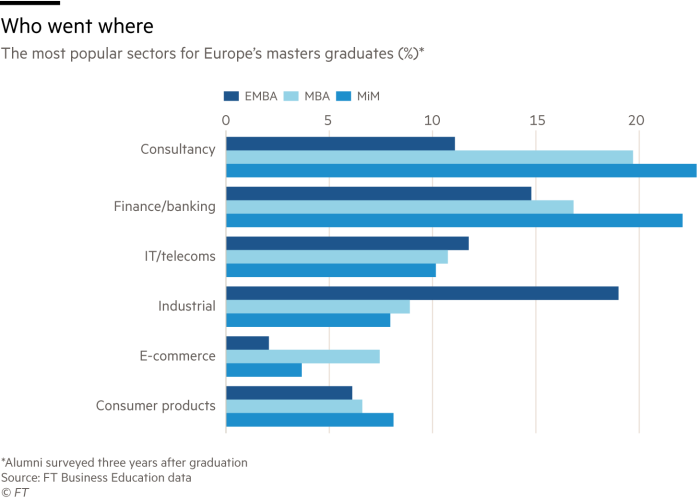
MBA programme alumni are more likely to work in up-and-coming sectors such as ecommerce than their MiM and EMBA counterparts.
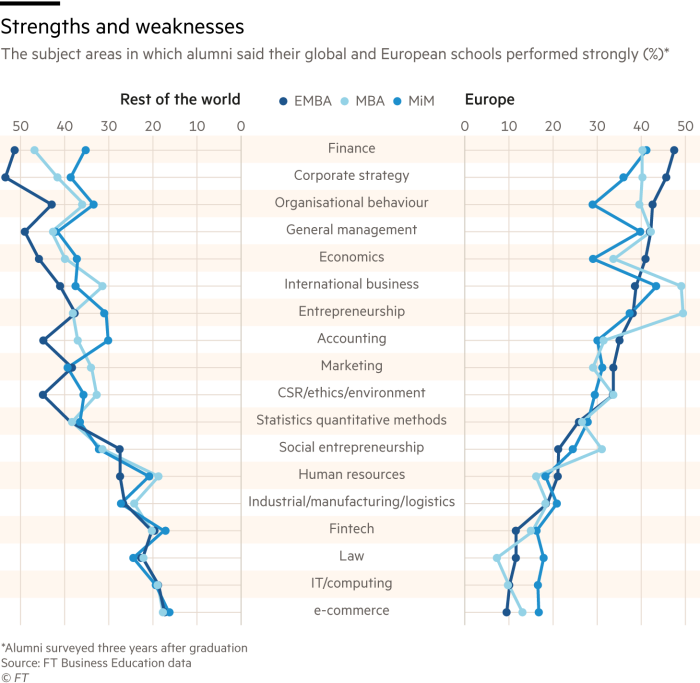
European school alumni report that MBAs are good for entrepreneurship and international business, while the EMBA is stronger for corporate strategy and finance. MiMs score highly for general management, international business and finance.
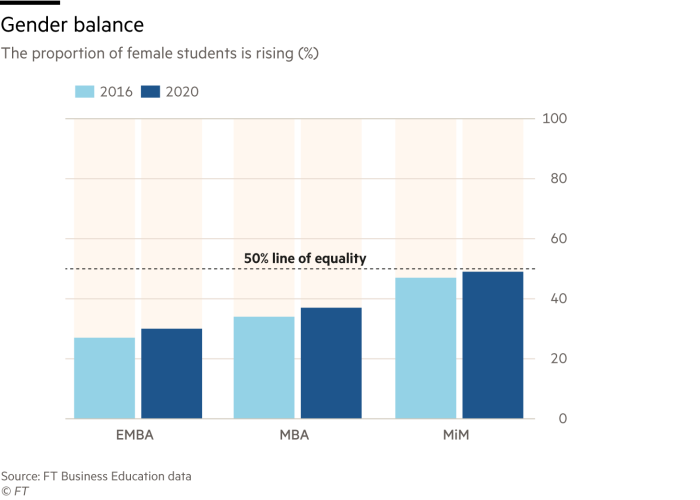
Masters in Management programmes at European business schools tend to have more gender-balanced cohorts. The number of female students studying for an MBA, executive MBA or MiM has increased in recent years.
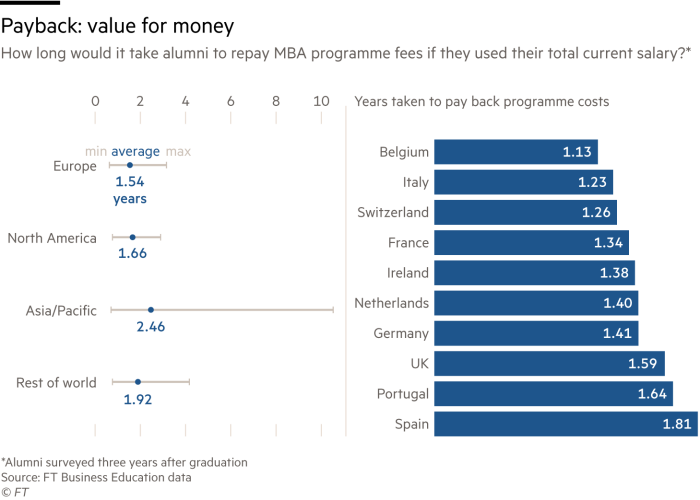
The number of years it would take alumni to pay off their fees if they were to use all of their salary three years after graduation. European schools are on average better value for money than the rest of the world, with Belgian alumni able to pay quickest.
Graphics by Chris Campbell
Comments